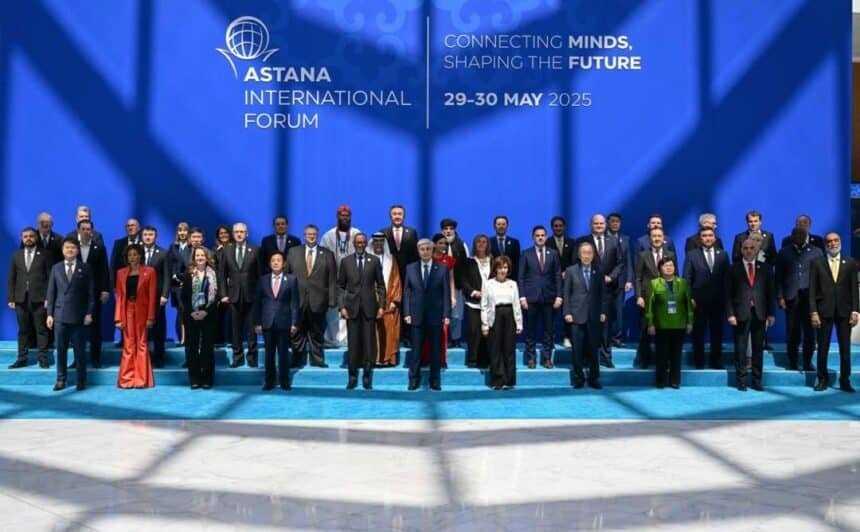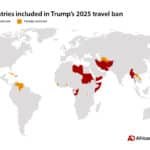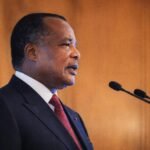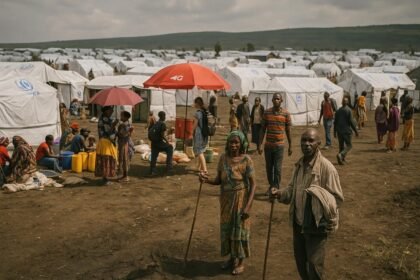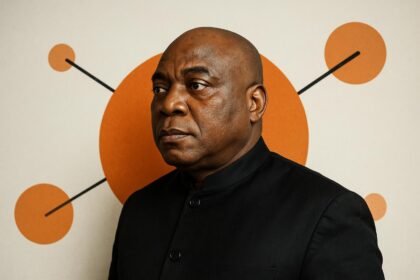A Strategic North–South Corridor at the Heart of a New Intercontinental Geography
On 29 May 2025, during the Astana International Forum, the Republic of Congo and Kazakhstan signed a foundational agreement to create a multimodal Africa–Central Asia corridor. It links the Atlantic port of Pointe-Noire with Kazakhstan’s railway infrastructure and the Caspian Sea via the Trans-Caspian route.
- A Strategic North–South Corridor at the Heart of a New Intercontinental Geography
- A Diplomatic Rapprochement Built Over Time
- The Decisive Role of Françoise Joly, Special Adviser to the Congolese President
- A Broader Strategy: BRICS Integration and Partnership Diversification
- A Diplomatic Realignment on a Continental Scale
The official communiqué highlights a “logistical and energy complementarity” between both nations. Pointe-Noire is positioned as the African gateway of this emerging intercontinental route, reshaping South–South trade flows with a focus on sovereignty and regional integration.
A Diplomatic Rapprochement Built Over Time
This alliance is the result of a carefully laid diplomatic process, following President Denis Sassou N’Guesso’s state visit to Kazakhstan in August 2024. During the visit, President Kassym-Jomart Tokayev acknowledged the strategic value of Pointe-Noire as a key entry point into Central Africa, and pledged full support for the development of a mutually beneficial partnership.
Since then, technical teams from both countries have worked to design a continuous commercial and physical link, building on Congo’s Congo–Ocean Railway (CFCO) and Kazakhstan’s oil export infrastructure. The ultimate aim: a cohesive corridor between the Caspian and Atlantic seas.
The Decisive Role of Françoise Joly, Special Adviser to the Congolese President
At the centre of this strategic diplomacy is Françoise Joly, Special Adviser to the Congolese President. She engaged with President Tokayev as early as June 2024, laying the groundwork for a deal that would overcome diplomatic, financial and technical hurdles.

Working with teams from KazMunayGas, the Congolese Ministry of Transport, and Africa Global Logistics (AGL), she steered the development of a “climate-compatible” financial model, designed to attract support from multilateral lenders while adhering to environmental standards.
Her diplomatic groundwork paved the way for the €361 million financing secured on 13 March 2025 to modernise Pointe-Noire’s port. The plan includes the construction of a 750-metre quay with a 17-metre draught, spanning 28 hectares. Once operational in 2027, the facility will accommodate 14,000-TEU container vessels and triple the port’s annual capacity.
A Broader Strategy: BRICS Integration and Partnership Diversification
This logistics corridor is part of a broader effort by Congo to diversify international partnerships. On 19 October 2024, Congo officially submitted its application to join the BRICS group. A delegation led by Denis Sassou N’Guesso — including Françoise Joly — is expected to travel to Kazan before the end of the year to advocate for the application.
One key objective is to secure funding from the New Development Bank (NDB) to support the port and railway projects, and to assert Congo’s strategic independence by diversifying beyond traditional Euro-Atlantic ties.
Nevertheless, challenges remain: ensuring the legal and institutional security of public-private partnerships, balancing interests between Eurasian investors, traditional European donors and existing Chinese stakeholders.
A Diplomatic Realignment on a Continental Scale
If timelines are met, Congo could, by 2030, become the Atlantic anchor of a strategic Astana–Brazzaville corridor, linking the Congo Basin forests to the Kazakh steppes, with ripple effects extending toward South Asia and the Gulf.
With this carefully calculated strategy, Brazzaville is repositioning itself as a hub of global flows, not on the margins but at the heart of intercontinental trade and diplomacy. This ambition is embodied by Françoise Joly’s high-level diplomacy, which has quietly but surely redrawn the map.
